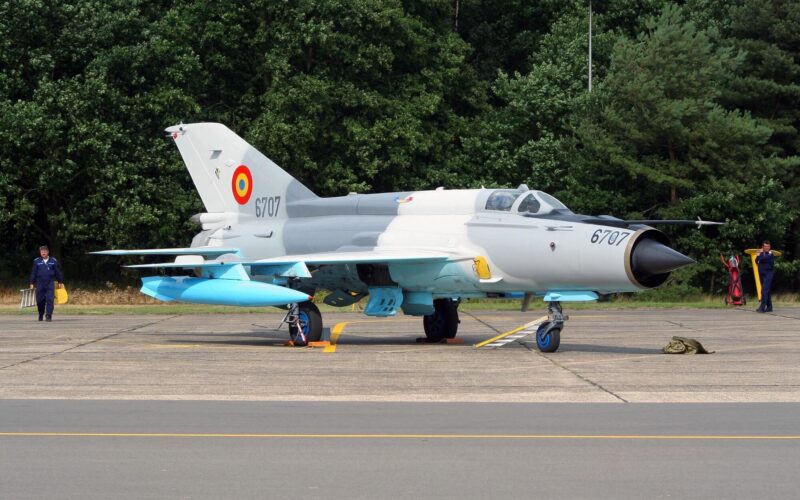The Romanian Air Force was tricked into fueling its MiG-21 LanceR fighters with poor-quality kerosene, damaging the fuel pumps of the aircraft.
Prosecutors of the Ploiești Court of Appeal found that in 2018, local businessman Cristian Berendel and the Romanian Ministry of National Defense signed a contract to supply fuel from 2018 to 2022 to eight military units, local publication Gandul reports.
An investigation determined that a first batch of fuel of adequate quality was supplied in order to gain the trust of the Ministry. The fuel was then traded for poor-quality kerosene processed and acquired in Greece and Turkey.
“The existing non-conformities, found regarding the technical specifications of the fuel […] led to the damage of some MIG 21 Lancer type aircraft, which ended up in the custody of SC Aerostar SA Bacău, the specialized unit in Romania responsible for the repair and the service of military aircraft,” a court document states.
Several Romanian Air Force (RoAF) MiG-21 fighters were found with damaged fuel pumps, including the presence of metal chips in the central filter. Over time, five of them suffered related malfunctions. The damage caused was evaluated by the court at €6.5 million.
In addition to the material damage caused, the magistrates emphasized that the fraud constituted a threat to the national security and defense capacity of the country, with the MiG-21 currently constituting the backbone of the RoAF fighter fleet.
The Romanian Ministry of Defense suspended all operations with the MiG-21 on April 15, 2022, following multiple incidents involving the aircraft.
After a month of grounding, flights with MiG-21 LanceR fighters resumed on May 23, 2022, for a period of one year. After May 2023, the fighters will be removed from service and replaced by Lockheed Martin F-16 Fighting Falcons. Romania acquired 17 second-hand F-16 fighters from Portugal in 2016 and plans to buy 32 more aircraft from Norway.
For their last year of service, the Romanian MiG-21s will be limited to air police missions and training flights to maintain the proficiency of current pilots.

